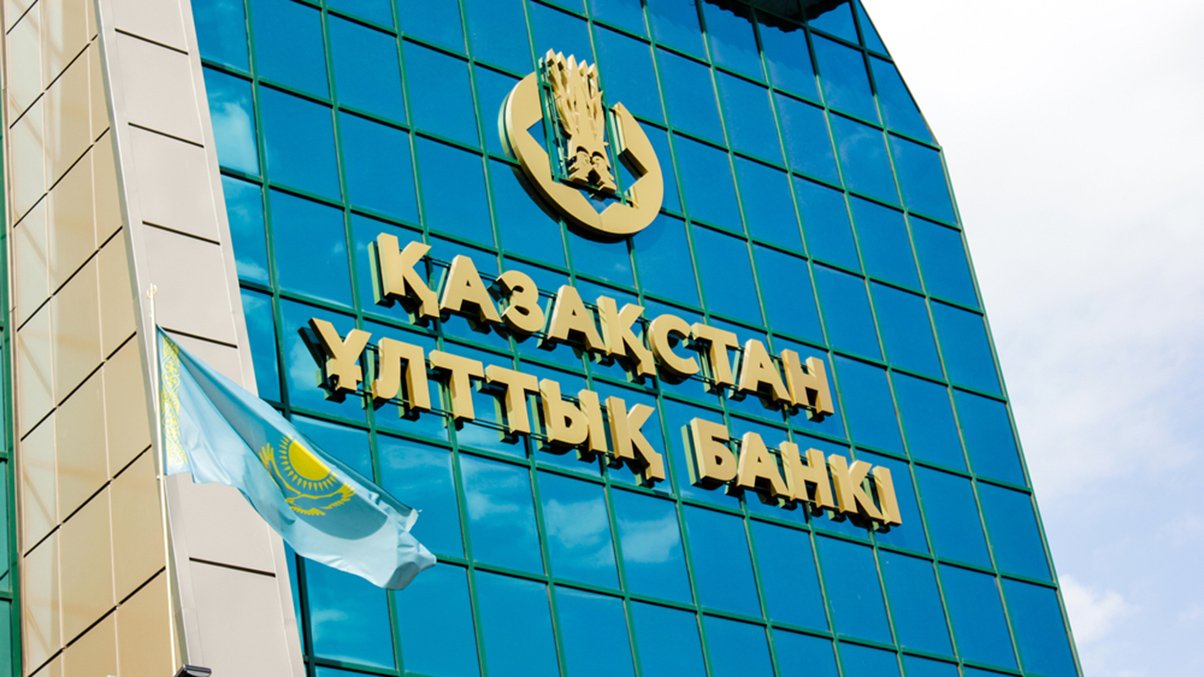Since the advent of the Covid-19 pandemic, arbitrating parties have had to adjust to the difficulties created by the present circumstances. Parties involved in pre-existing proceedings have faced negotiating and re-casting procedural timetables and (possibly) conducting hearings on a fully or partly-virtual basis. At the same time, their personnel and legal teams have transitioned into working remotely, and legal budgets have come into sharp focus.
For many, the question of whether to commence or participate in proceedings now or at all has also arisen, forcing a multi-faceted analysis based on fast-evolving variables and an economic climate that continues to be uncertain. Partner Daniel Wilmot and Associate James Coen set out the issues that GCs should think about when considering whether to proceed with a virtual arbitration hearing.
The learning curve has been steep for all involved. But much has now been learned in respect of the practical conduct of virtual arbitration proceedings and hearings. The predictions are borne out in reality. The inherent flexibility and cross-border nature of arbitration has allowed it to adapt better to the new ways of working when compared to many domestic court systems, which are constrained by court closures and rigid court rules and procedures. Indeed, it is increasingly clear that there are benefits to ‘virtual’ arbitration. These include a potential reduction of costs owing to increased use of technology, the ability to agree flexible schedules to accommodate working patterns and promoting wider hearing ‘attendance’ by stakeholders.
Drawing on Stewarts’ now-extensive experiences of ‘virtual justice’ during the Covid-19 pandemic conducting arbitrations and sitting as arbitrators (and in cases before the English courts), the purpose of this article is to summarise some of that learning to guide in-house counsel facing virtual arbitration to some of the issues to explore at each stage of the process.
Prepare to prepare (and manage) your case
A number of practical and administrative issues may affect how you prepare and manage your case in a virtual arbitration. It is important to engage with these issues at an early stage. For example:
- When appointing tribunal members, or other third parties such as translators or experts, consider whether it may exacerbate difficulties if they are operating in a significantly different time-zone. Similarly, consider if there is any uncertainty over their ability to participate in a virtual process. For example, are they technically proficient or do they at least have the appropriate support staff or technological framework to assist them?
- Case preparation and progression will take longer when remote working owing to practical difficulties. For example, meetings and discussions will take longer than anticipated, especially if attempting to interview a witness by reference to documents being reviewed electronically. Difficulties working with individuals without a reliable home working function or it taking longer to complete certain steps such as data collection and disclosure must also be factored in. These (and other) issues require the implementation of appropriate and realistic timetables, building in sufficient time and flexibility. By doing this at an early stage, there is an opportunity for the parties to capitalise on the tribunal’s discretion and flexibility to reach a solution that accommodates the parties’ concerns before the structure and timetable for the arbitration is set.
- Consider the availability of technology to support case management, such as an online case management platform. Such platforms can provide cost and time efficiencies and can be effectively regulated through the agreement and adoption of protocols such as the Protocol for Online Case Management in International Arbitration, an example of which is available here.
- As considered in more detail below, issues around data management come into sharper focus in fully remote proceedings. For example, parties will need to consider data retention policies carefully in the context of dispute hold notices and the likely increased complexities of data preservation in a remote working environment. Relatedly, it is now more important than ever that internal IT departments are not only ready to support and offer the necessary technology and staff respectively to allow the smooth operation of remote working but also are trained in the typical requirements and processes of a data retention and collection exercise for disclosure purposes.
- Engage with your opposition at an early stage to seek agreement on practical measures that may be more appropriate in fully remote proceedings, such as exchanging on a fully electronic basis only to avoid printing and couriering.
Keep sight of data issues
The need to consider data management, protection and security existed before the recent shift to virtual justice. That shift and, in particular, new ways of working have, however, refocused minds on the importance of such data issues. There are no set answers to the questions those issues generate as each dispute needs a bespoke analysis, but certain common themes arise.
Data security
Recent events brought about a significant change to a remote working model for most. Previous ways of working in the office had to adapt quickly, some by design, many out of necessity to allow work to continue as seamlessly as possible. Existing IT infrastructure was stretched and repurposed. In some cases, new infrastructure was hastily deployed. Risk management policies and procedures risked playing second fiddle to the steps necessary to keep business moving. The use of personal email accounts when faced with poor corporate network remote connectivity, USB keys being used to transfer data in the face of slow home internet speeds and the explosion of Zoom (and much-reported ‘Zoom bombing’) are all examples illustrating the heightened risk of data security issues arising. An article exploring in more detail data security and data protection in international arbitration can be found here.
Two features of arbitration already intensified this risk. First, its confidential nature imposing corresponding obligations on all its participants. Second, its international nature, prompting data flows globally between institutions, arbitrators, lawyers, clients, experts, witnesses and third-party vendors (among others). The current working environment increases such risk.
Institutions are slowly forcing the issue onto the agenda, with the latest edition of the LCIA Rules now obliging tribunals to consult with parties on the matter (LCIA Rules 2020, Article 30A available here). Careful thought, therefore, needs to be given to managing this issue at the outset of an arbitration. An arbitration-focused cybersecurity protocol (with guidance) was recently published by a joint ICCA-NYC Bar-CPR working group which offers a useful prompt for the sorts of issues to consider. The ICC has published recently guidance focused on mitigating the impacts of Covid-19 upon arbitration (available here). More generic advice on cybersecurity in a legal context was published by the IBA in October 2018 (available here).
Data protection
The delocalisation of office personnel and participants in the arbitral process brings about a renewed need to focus on data protection and compliance with applicable laws and regulation.
Ways of sharing data to circumvent remote working hurdles must comply with requirements, ensuring that approaches are also consistent with post-Brexit regimes from 1 January 2021. Similarly, steps taken and third parties engaged to facilitate a virtual hearing may also trigger data protection requirements in connection with necessary data transfers (e.g., for eBundles).
Increasing attention is now being given to data protection in the context of international arbitration. A taskforce jointly established by ICCA and the IBA has recently published draft guidance that goes some way to highlighting the issues to consider.
Data management
Disclosure remains an important and often costly stage of a dispute. Parties typically engage the services of a vendor to support data collection, hosting and review for disclosure purposes. The current climate has placed a spotlight on remote data collection techniques. While not novel, the techniques are now realistically the only viable option available. It is undoubtedly the case that corporates with robust data management practices are significantly facilitating that process. Those practices include clear data and custodian mapping, dispute retention policies (adjusted to cover remote working) and IT teams trained to support vendors and lawyers in conducting data collections for disclosure.
New ways of working are also creating new datasets. Recorded Zoom meetings and chat logs are disclosable documents. The increased use of email, WhatsApp and similar methods to bridge communication gaps in remote operational environments must be carefully controlled in the context of legal privilege and creating harmful, disclosable documents during the life of a case.
How to handle the (virtual) hearing
As the arbitration progresses and the hearing draws closer, there are additional hearing specific matters to consider that may be administrative, procedural or technical in nature.
Consider administrative matters such as time allocation between the parties, how technical issues will be determined and resolved (and if one party should bear responsibility for them and therefore bear the time burden). Scientific evidence and our own experiences suggest that remote hearings are more tiring for all participants than in-person hearings, and technical delays are also common. Factor this into your timetable by allowing frequent breaks, flexible timetabling (including outside of working hours if appropriate to accommodate time differences) and shorter examination periods for witnesses.
Ensure attention is given to important procedural and legal issues, such as how witnesses give evidence. For example, will they be alone in the room and only have unmarked copies of the case files and, if so, how will that be monitored. An example of a protocol applicable to witness evidence is available at Article 3.2 here. A further important consideration is to investigate if a virtual hearing could potentially create any legal problems in both the jurisdiction in which the arbitration is seated and the jurisdiction where enforcement of any award will be sought. For example, proceeding with a virtual hearing could provide an opportunity later to resist or challenge enforcement of an award if the procedural rules or governing law require “in person” hearings or if the legality of a virtual hearing is unclear.
Technical issues to consider include ensuring that all parties have access to back-up operations, investing in multiple screens (a virtual hearing must) to ensure parties can view video screens, e-bundles, emails and other documents simultaneously and having practical alternatives to local copy eBundles (which are often fraught with problems). Give thought to how advocates will receive instructions and how clients and legal teams can communicate as the hearing and evidence unfolds. Secure online chat functions have proven popular. Carefully assessing the best platform on which to host the virtual hearing pays dividends: optimal screen ‘real estate’ and workflows make a remarkable difference.
Many of the above issues can be navigated by the parties cooperating and giving early and detailed consideration to the practicalities of the hearing. For example, by:
- testing the systems proposed well in advance of the hearing (for example, what hardware are participants using? Where are they based? Do domestic internet connections have the bandwidth necessary to sustain the hearing seamlessly?);
- ensuring that all participants are aware of the processes in place and act accordingly. For example, we are aware of witnesses attending cross-examination with handwritten notes, or possibly using electronic communications during their evidence attracting censure from the tribunal. If a witness is not sure of the process or does not have access to a confidential and reliable working environment, consider someone supervising them in the room and/or arranging for them to attend the office of a law firm or arbitration centre to give evidence. Similarly, individuals should be reminded not to speak over other participants and be wary of time lags. In a virtual process with a loss of the more formal in-person atmosphere of a hearing, it can be more difficult to maintain a coherent speaking order. Ensuring that all participants are aware of the process should help to avoid problems created by the concern that virtual tribunals are less able and/or willing to maintain hearing discipline as effectively as at in-person hearings; and
- trying to reach agreement where possible, such as agreeing a protocol to help guide all parties towards identifying the practical issues for any remote hearing and devising solutions together. An example of a protocol devised by the African Arbitration Academy is provided here.
The decision as to whether to pursue a hearing on a virtual basis (and if so, how and to what extent) also raises questions of strategy. You must consider if there are features of a virtual hearing that may work against your interests. For example, in cases involving allegations of fraud, it is generally viewed as preferable to be able to cross-examine witnesses in person to enable the parties and the tribunal to read body language and reaction and to provide less opportunity for stalling tactics or delays before answering. Our experience as both counsel and arbitrator points to virtual cross-examination not being as inhibited as was first feared by many. That said, it also points to not every case being suitable for the giving of evidence remotely, e.g., the ‘hot tubbing’ of experts or the simultaneous translation of witness evidence is challenging.
Not every party to an arbitration will want or be able to proceed with a virtual hearing, particularly given concerns over the ability to work effectively remotely in particularly complex, highly confidential or document intensive cases, or in jurisdictions with restricted or unreliable internet access. Remember, that if you do identify concerns that may weigh against a virtual hearing, this should be weighed against the fact that a successful objection will have the consequence of prolonging or suspending the arbitration if it is not possible to hold the proceedings in-person. This may serve a respondent’s interests.
A tribunal may exercise its discretion to proceed with a virtual arbitration despite the parties not agreeing whether to proceed on that basis. As yet, there are few reported cases on how tribunals have approached a party’s objection to a virtual hearing and whether a decision to proceed nonetheless is open to scrutiny or challenge. However, recent cases from the English courts, which may be illustrative as to how a tribunal would approach the issue, indicate that the bar to persuade a tribunal not to proceed with a hearing virtually if there is no other feasible and practicable alternative (such as a semi-virtual process whereby only cross-examination of witnesses is conducted in person) could be set high. To date, the English courts have given short shrift to complaints such as insufficient time to prepare for a transition to, or to test, a virtual process, poor internet connectivity, experts or witnesses who are inexperienced in the use of technology or travel restrictions between the jurisdictions in which lawyers and their clients are based. See for example the decisions about how to proceed virtually in National Bank of Kazakstan & Another v The Bank of New York Mellon & Ors, Municipo de Mariana & Others v BHP Group PL and Heineken Supply Chain BV v Anheuser-Busch Inbev SA. Tribunals, mindful of their duties to case manage disputes effectively, will be alive to delaying or disruptive tactics.
This article is also available on The Lawyer (subscription required)
Covid-19 is impacting individuals and companies around the world in an unprecedented way. We have collected insights here to help you navigate the key legal issues you may be facing at this time.
You can find further information regarding our expertise, experience and team on our International Arbitration page.
If you require assistance from our team, please contact us or alternatively request a call back from one of our lawyers by submitting this form.
Subscribe – In order to receive our news straight to your inbox, subscribe here. Our newsletters are sent no more than once a month.








